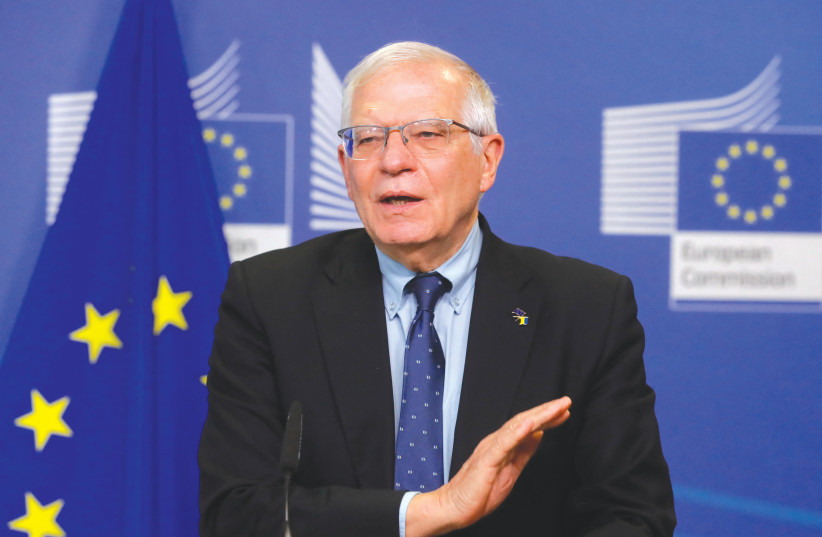Israel charged that European Union Foreign Policy Chief Josep Borrell’s trip to Tehran over the weekend showed that he did not care about the safety of Israeli citizens.
Foreign Minister Yair Lapid issued the charge against Borrell in an exchange of written email messages that were first reported by Politico and confirmed by The Jerusalem Post.
An Israeli source told the Post that Borrell had reached out to Lapid prior to the Iran trip, telling him that he wanted to save the 2015 Iran deal, known as the Joint Comprehensive Plan of Action, explaining that he saw major potential to revive the deal.
The trip came just after Turkey had arrested 10 Iranians connected to a terror cell that had planned to target Israeli tourists in their country.
Lapid referenced the foiled attack, telling Borrell that he had displayed a “worrying disregard for the welfare of our people” as well as the concerns raised by the Intentional Atomic Energy Agency about Iran’s uranium enrichment activity.

The foreign minister warned Borrell that Iran was merely playing for time, pretending to negotiate with the West while it advanced its nuclear program.
Israel had opposed the initial 2015 deal to constrain Iran nuclear activity signed between Tehran and six world powers: the United States, Russia, China, France, Great Britain and Germany.
The Jewish state was convinced that the deal allowed Iran to still pursue its nuclear weapons ambitions and that it strengthened its ability to support global terror activities.
The former Trump administration exited the deal in 2018, reimposing crippling sanctions on Iran that had been lifted in 2015 when the JCPOA was signed.
US President Joe Biden has sought to revive the deal. Indirect talks between Washington and Tehran, moderated by the EU in Vienna, have faltered.
Just as it seemed that all hopes of reviving the deal were dashed, Borrell announced from Tehran on Saturday that talks would resume.
“We will restart the discussions we [had] stopped for the last three months. And the United States and Iran will talk, not directly but with facilitation by me and my team as coordinator [of the JCPOA negotiations],” Borrell told reporters.
